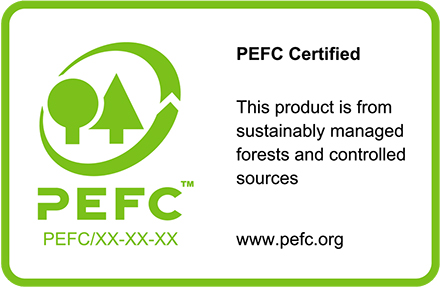PEFC notes the concerns voiced by Greenpeace in a recent report, namely that ‘[c]ertification on its own has not helped companies meet their 2020 commitments to exclude deforestation from their supply chains’ and cautions that certification was never designed – and never claimed – to do so on its own. Source: Timberbiz
“Forest certification is an important part of the toolbox needed to stop deforestation, protect biodiversity, safeguard livelihoods, and provide society with wood as a sustainable, renewable raw material,” said Ben Gunneberg, CEO of PEFC International.
“Forest certification is not designed to solve issues like deforestation by itself. This is because many of the factors causing deforestation are outside forestry, such as the demand for land for agricultural production. We need to employ multiple tools, ensure the support of all stakeholders, and work collaboratively to achieve our common objective: safeguarding our forests,” added Mr Gunneberg.
In light of this, PEFC welcomes Greenpeace’s call on governments and companies to take responsibility to protect people and nature. “Forest certification can help authorities and businesses get on the right track, and we must do it together,” stressed Mr Gunneberg.
PEFC has been widely recognized as an important and robust mechanism to promote sustainable forest management. A recent assessment by the Dutch Timber Procurement Action Committee (TPAC), one of the world’s leading public procurement policies, found the PEFC standards to be fully compliant with a comprehensive set of sustainability requirements.
TPAC gave PEFC top marks on sustainability criteria including the protection of high ecological values and endangered species, the rights of communities, workers and indigenous peoples, and the prohibition of forest conversions. It found PEFC’s chain of custody system to be fully compliant, in addition to PEFC’s governance and decision-making processes. PEFC also received the highest ranking against the ASEAN Guidelines for Promoting Responsible Investment in Food, Agriculture and Forestry, scoring 9.5 out of 10 points.
PEFC regrets that the Greenpeace report has not appropriately considered or recognised our standards, processes, and the overall value PEFC provides to society, despite the comprehensive and detailed clarification provided by PEFC prior to the publication of the report.
The report contains a wide range of significant shortcomings and numerous factual errors concerning PEFC and other certification systems, as Greenpeace chose to ignore the ample clarifications provided by us and others.
Greenpeace has gone to great lengths to make the content fit its message. In addition to ignoring corrections provided by stakeholders, it also modified criteria to make certification systems appear to be underperforming. For example, Greenpeace arbitrarily changed its interpretation of a “sufficiently strong” cut-off date for ecosystem conversion from “2014” in the draft scorecard (disseminated in January 2021) to “2008 or earlier” in the final report (released only six weeks later). While a 2008 cut-off date ensures that most certification systems fail this indicator, almost all meet (or partially meet) the 2014 date. We share the sentiment voiced by others that “the report is written in a biased way and seems to aim at making headlines with simple messages instead of constructively addressing content and discussing it appropriately”.
“We need to move to constructive engagement over destructive criticism. Our forests are at risk. We need all the tools. We need all the stakeholders. We need everyone to work together, and we need to do so now,” concluded Mr Gunneberg






